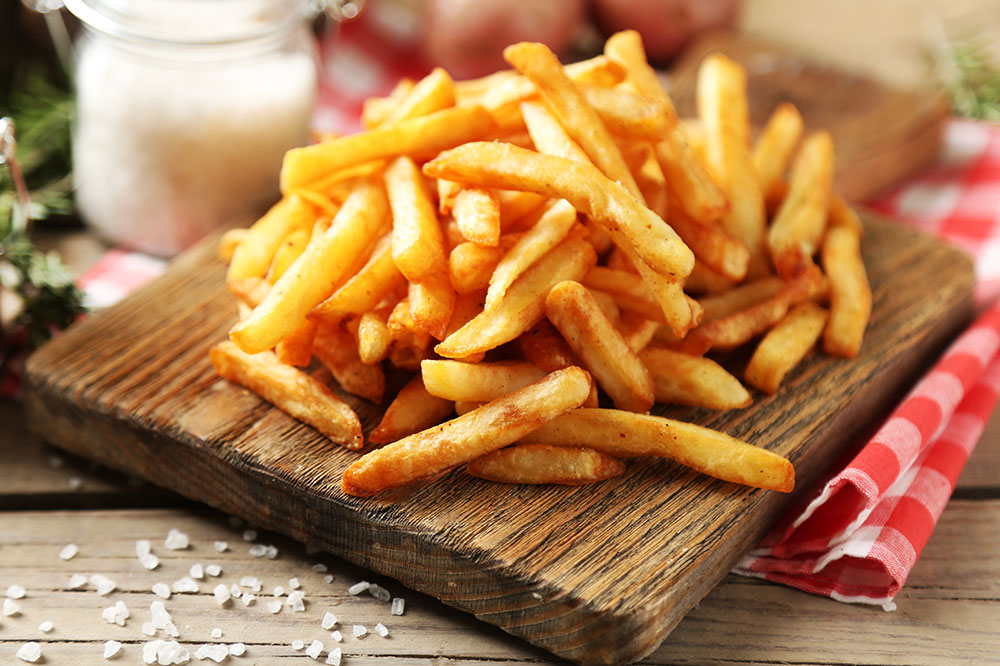5 foods that can lead to poor eyesight
Nutrition plays a crucial role in the performance of different organs, including the eyes. Our eyes are made up of vascular tissue, which means the foods that are unhealthy for the heart are unhealthy for the eyes too. The tiny capillaries in the eyes supply the retina with oxygen and nutrients to keep it healthy. However, foods rich in unhealthy fats can block these blood vessels, compromising eye function and leading to vision problems.

French fries
French fries are often made in the same oil and even reheated multiple times, leading to molecular changes that increase the concentration of harmful fats. A high amount of these fats affects the eyes, heart, and other organs. Also, free radicals in fried foods increase oxidation in the body, which can damage the eyes.
Margarine
Margarine is often advertised as the healthier butter, but it is rich in trans fats— the fat that increases bad cholesterol levels. Increased cholesterol leads to blockages in arteries and other blood vessels, restricting the flow of oxygen, blood, and nutrients. It, in turn, can increase the risk of eye diseases. Healthy alternatives to margarine are coconut oil, avocado oil, and olive oil.
Processed meat
Highly processed meats, like sausages, bacon, and hot dogs, are convenient snacking options. But they are another reason for high cholesterol. The high-fat content harms the eyes, heart, and other vital organs. Regular intake causes plaque build-up in macular vessels, obstructing blood flow to the eyes and increasing the risk of macular degeneration and retina damage.
Frozen meals
Frozen pizzas and other ready-to-eat meals are convenient when in a rush. But that is their only benefit. They have a lot of added preservatives, sugar, and salt, which are detrimental to eye health. Adding a lot of frozen foods to the meal plan can also lead to an increased risk of eye conditions caused by diabetes and lifestyle diseases.
Dressings
Sauces and dressings brought from the store add a touch of taste to the food and make it look attractive. However, high amounts of sugars, salts, and preservatives in these products can harm the eyes. They also have a lot of fat, which, when eaten regularly, can lead to an increased risk of macular degeneration. One can replace store-bought sauces and dressings and use homemade alternatives instead.
Besides avoiding the above-listed foods, doctors recommend eye gels or drops that benefit the eyes. These treatments combat eye dryness and irritation and prevent more serious conditions. Some popular eye drops are:
VUITY™
VUITY™ is used to treat presbyopia in adults. The eye drops reduce the pupils’ size, helping patients see better. The recommended dosage is one drop per eye, once a day. But some might be advised to use a higher dosage.
SYSTANE® Gel Drops
SYSTANE® Gel Drops by Alcon are among the most recommended eye drops to treat severe dry eyes. Patients can expect long-lasting relief, thanks to the thick consistency of the drops. It is suitable for patients of all ages to relieve irritation and inflammation.
CEQUA™
CEQUA™ ophthalmic eye drops help treat dry eyes by increasing tear production. It also manages the irritation and redness accompanied by the condition. The recommended dosage of CEQUA™ ophthalmic eye drops is one drop per eye twice daily, around 12 hours apart.




